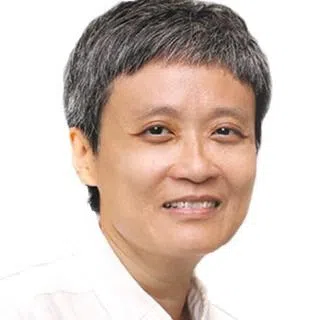Hard tech drives focus at China’s symposium on private enterprises with Xi Jinping
China’s most prominent businessmen recently met with Xi Jinping at a symposium on private enterprises. The high proportion of tech heavyweights among the 14 entrepreneurs invited hints at the Chinese government’s focus on developing tech enterprises to deal with internal and external challenges, says Lianhe Zaobao correspondent Sim Tze Wei.
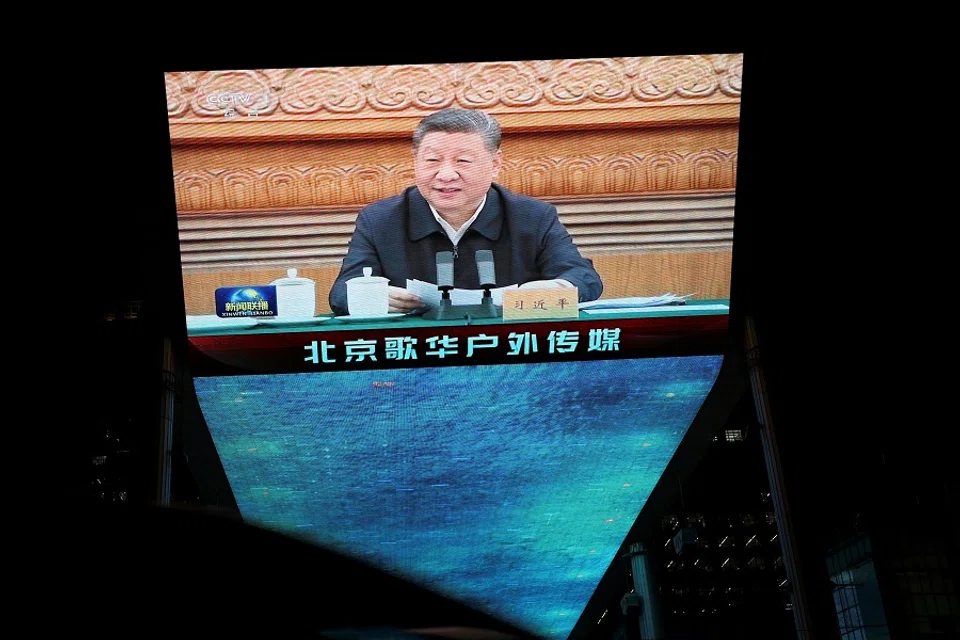
Several prominent Chinese private entrepreneurs from the technology, artificial intelligence and traditional industries sectors met with Chinese Communist Party (CCP) General Secretary Xi Jinping in Beijing on 17 February at a symposium on private enterprises. Interviewed academics assessed that China is placing emphasis on the development of tech enterprises in a bid to break through the US tech blockade.
According to footage from China Central Television’s Xinwen Lianbo programme, 14 entrepreneurs were seated in the first row facing the podium. They were, from left to right, battery manufacturer CATL chairman Zeng Yuqun, tech giant Alibaba co-founder Jack Ma, dairy company Feihe Dairy chairman Leng Youbin, energy product manufacturer CHINT Group chairman Nan Cunhui, Unitree Robotics founder Wang Xinxing, animal feed producer New Hope founder and chairman Liu Yonghao, telecommunications company Huawei founder Ren Zhengfei, electric vehicle manufacturer BYD chairman and CEO Wang Chuanfu, Shanghai-based Will Semiconductor chairman Yu Renrong, smartphone and electric vehicle manufacturer Xiaomi CEO Lei Jun, cybersecurity company Qi An Xin Technology Group chairman Qi Xiangdong, Tellhow Group board chairman Huang Daifang, Tencent board chairman and CEO Ma Huateng, and AI startup DeepSeek founder Liang Wenfeng.
... the entrepreneurs represented could be grouped into three main industry categories: emerging industries (technology, internet platforms), future industries (artificial intelligence, robotics) and traditional industries (feed, dairy). — Shen Hong, Researcher, Institute of New Structural Economics, Peking University
High proportion of tech representation
Compared to the private enterprise symposium in 2018, this year’s meeting featured more representatives from hardcore technology companies. Seated in the centre and carrying the most weight was Huawei founder Ren Zhengfei. Xinhua News Agency’s press release also listed him as the first private enterprise representative to speak. The other five speakers were Wang Chuanfu, Liu Yonghao, Yu Renrong, Wang Xingxing and Lei Jun.
Shen Hong, a researcher at Peking University’s Institute of New Structural Economics, said that the entrepreneurs represented could be grouped into three main industry categories: emerging industries (technology, internet platforms), future industries (artificial intelligence, robotics) and traditional industries (feed, dairy).
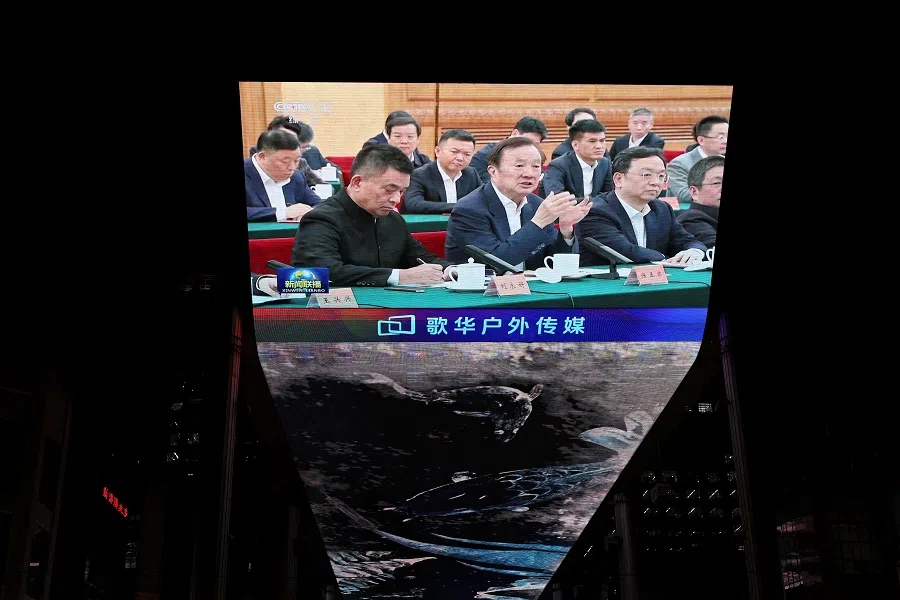
Shen told Lianhe Zaobao that by inviting representatives from traditional industries, officials wanted to convey that promoting new quality productive forces was not limited to emerging and future industries, and that feed and dairy industries could also be transformed and upgraded. Not only that, emerging industries such as Huawei and BYD and future industries like robotics and DeepSeek, formed the backbone of the Chinese economy. In the face of competition and containment from Europe and the US, these industries should be developed well.
Associate Professor Gu Qingyang of the Lee Kuan Yew School of Public Policy (LKYSPP) at the National University of Singapore (NUS) pointed out that for China to break out of the US’s containment, the technology field would be key. This was why the government has been focusing on the development of the technology sector in recent years.
Seating arrangement hierarchy
Shen Meng, director of Chanson & Co, analysed the seating arrangement of the entrepreneurs: the highly influential Ren Zhengfei was placed in the centre; Liang Wenfeng of the recently popular DeepSeek, being relatively young, was seated on the far side; as for Tencent, which is not considered hard tech, its CEO Ma Huateng was also seated towards the side. Meanwhile, Liu Yonghao, Leng Youbin and Nan Cunhui are all current or former vice-chairmen of the All-China Federation of Industry and Commerce.
The appearance of Jack Ma, who has kept a very low profile in recent years, at the symposium attracted particular attention. He was seated second from left, also a relatively peripheral position.
Based on the seating arrangement, however, Ma “is in fact still marginalised and not fully accepted back into the fold”. — Shen Meng, Director, Chanson & Co
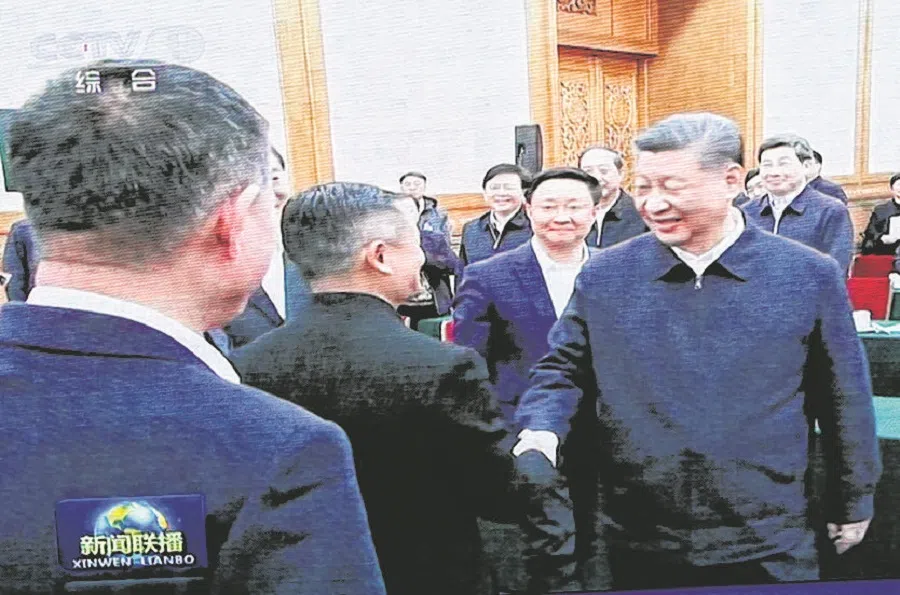
Shen Meng analysed that if Ma, a symbolic figure among Chinese private enterprises, was not invited, it would be difficult to restore confidence in the sector, and entrepreneurs and businesspeople would also question the government’s sincerity. Based on the seating arrangement, however, Ma “is in fact still marginalised and not fully accepted back into the fold”.
Shen felt that the authorities’ message was: while they do not agree with Ma’s previous plans to develop internet finance, all is forgiven, and if Ma does well in the future, he will still be given opportunities.
In the official media video, representatives from Baidu and ByteDance were not seen attending the symposium. Reuters cited sources which confirmed that neither company had representatives present.
The presence or absence of company representatives at the symposium impacted stock market performance. On 17 February, Chinese tech stocks showed a polarised performance. Baidu fell by 7%, marking the largest decline on the Hong Kong Hang Seng Index. In the A-shares market, stocks related to artificial intelligence and robotics rose, driving the Shanghai Composite Index up by 0.27%.
Xi’s speech a confidence booster
During the symposium, Xi stated that fundamental policies for the development of the private economy have been incorporated into the national institutional system, and that “this cannot and will not change”. He encouraged private entrepreneurs to seize the moment, hoping they would “be patriotic, prosper and then spur common prosperity”, in addition to maintaining a spirit of perseverance amidst difficulties.
... he [Xi] said that it would be necessary to strengthen law enforcement and supervision to legitimately protect the legal rights of private enterprises and entrepreneurs and ensure that illegal activities by any company will not evade investigation and prosecution.
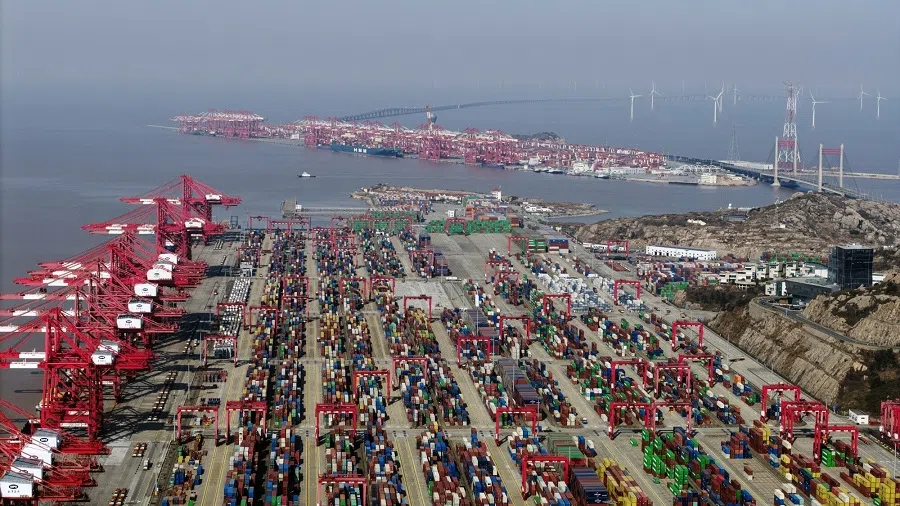
Scholars interviewed analysed that China’s post-pandemic economy was still recovering amid added pressures from the US trade and tech war. With the Chinese economy facing internal and external stresses, the role of private enterprises could not be more crucial in driving economic and technological innovation. Xi’s speech reassured private enterprises somewhat. But they would see if the authorities would enact supportive policies or propose legislation at the “Two Sessions” to protect them and prevent their rights from being violated through “deep sea fishing” style enforcement.
After listening to speeches by entrepreneurs, Xi said that the CCP and the Chinese government were unwavering in their efforts to consolidate and develop the public sector economy as well as to encourage, support and guide the development of the non-public sector economy. Xi noted that the difficulties faced by the private economy generally emerged amid reform and development, and during industrial transformation and upgrading. He also mentioned that these issues affected only parts of the economy, not the economy in its entirety.
... many private entrepreneurs felt they were treated unfairly and overregulated over the past few years, causing some to turn towards foreign investments or recreational spending. This is detrimental to China’s economy, especially in the face of comprehensive restrictions from the US. — Associate Professor Gu Qingyang, LKYSPP, NUS
He stated that it was essential to decisively remove obstacles standing in the way of equal and legal use of production factors and fair participation in market competition. Continuing to make great efforts to solve the issues of difficult and high-cost financing for private enterprises, and addressing the problem of arrears owed to private enterprises, would also be imperative. Finally, he said that it would be necessary to strengthen law enforcement and supervision to legitimately protect the legal rights of private enterprises and entrepreneurs and ensure that illegal activities by any company will not evade investigation and prosecution.
Both Gu Qingyang and Shen Hong believe that Xi’s speech sets the tone for the Two Sessions in March, where the status of private enterprises is expected to be reinforced.
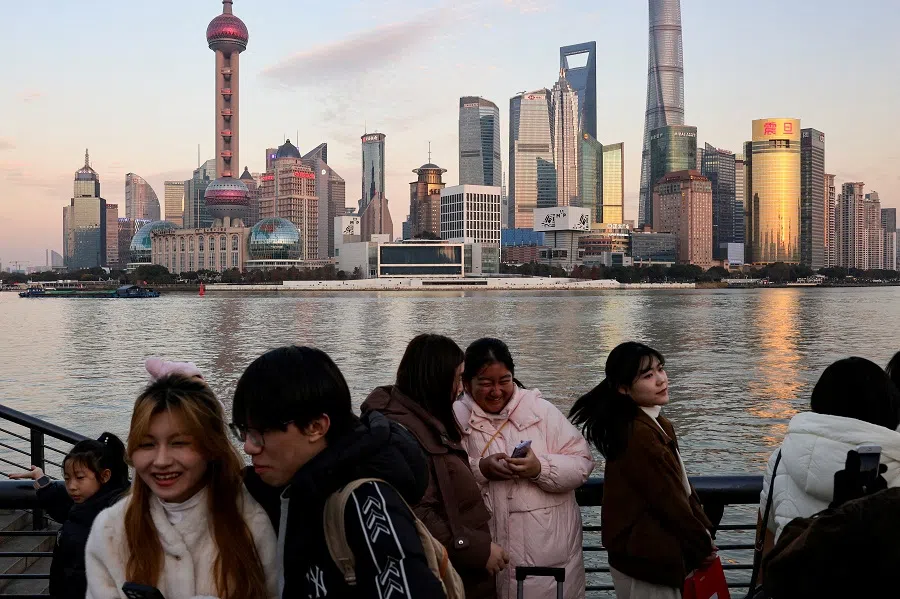
According to Gu, many private entrepreneurs felt they were treated unfairly and overregulated over the past few years, causing some to turn towards foreign investments or recreational spending. This is detrimental to China’s economy, especially in the face of comprehensive restrictions from the US. In addition, China needs private enterprises to play a more significant role in job creation, technological innovation and global trade. In his view, the symposium helped to restore confidence in private enterprises.
Shen Hong also commented that what China’s economy lacks most right now is confidence. However, a speech by the nation’s top leader offers a glimpse of hope, akin to the confidence-boosting effect Deng Xiaoping’s famous line “it doesn’t matter whether a cat is black or white, as long as it catches mice” had on the public.
This is an edited version of the articles first published in Lianhe Zaobao as “多位中国科技企业家出席官方座谈 马云尤引关注” and “习近平信心喊话 学者预期官方将出台支持民企具体政策”.
